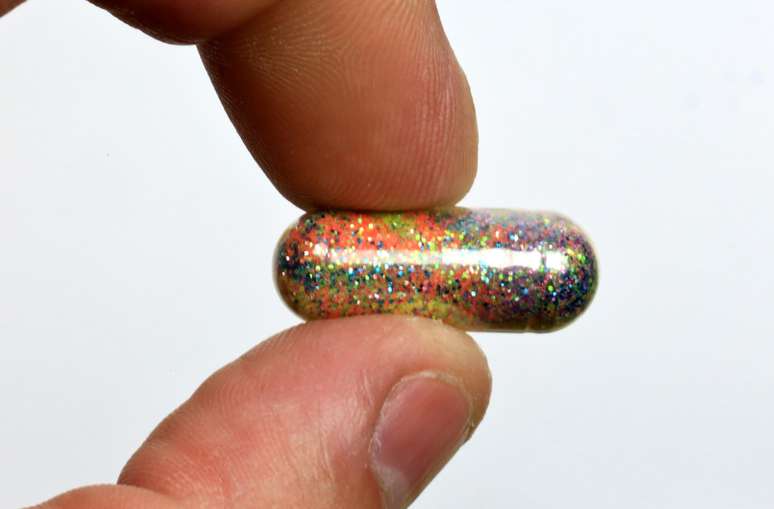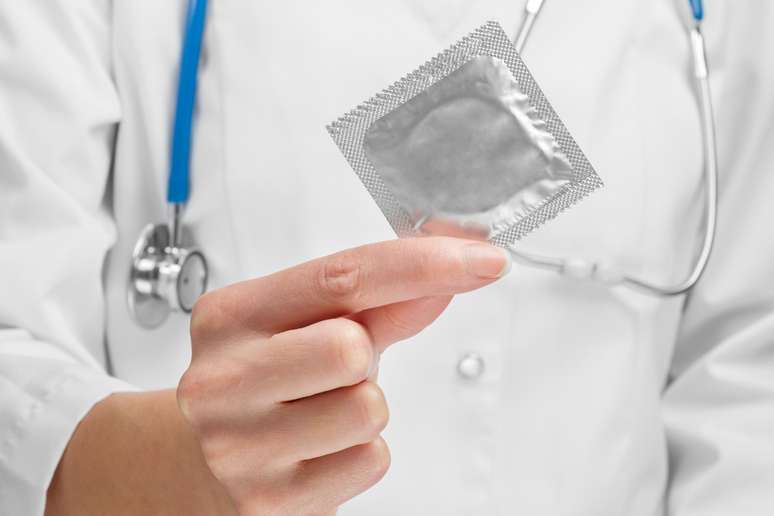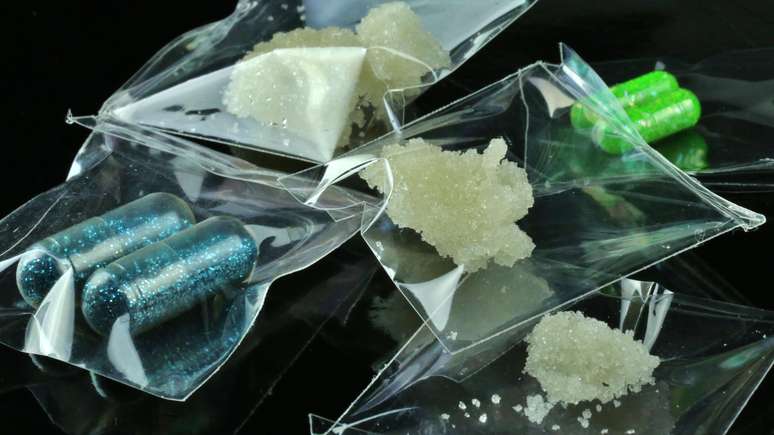The psychiatrist points out that many fans “end up linking their sex life to drug use and are no longer able to have sex without them.” Addiction, according to him, leads to financial and health problems and even difficulty socializing.
html[data-range=”xlarge”] figure image img.img-eae2718dbc0aa2ca6802a428a77a0e0aodffyrnm { width: 774px; height: 435px; }HTML[data-range=”large”] figure image img.img-eae2718dbc0aa2ca6802a428a77a0e0aodffyrnm { width: 548px; height: 308px; }HTML[data-range=”small”] figure image img.img-eae2718dbc0aa2ca6802a428a77a0e0aodffyrnm, html[data-range=”medium”] figure image img.img-eae2718dbc0aa2ca6802a428a77a0e0aodffyrnm { width: 564px; height: 317px; }
While most people were in seclusion in his mid-20s, Samuel (not his real name) spent every weekend away from home, finding partners to take drugs and have casual sex.
“I stayed up for four whole days, not drinking water or eating, just using (drugs) and having sex,” said the 30-year-old man, a resident of São Paulo, who is homosexual.
Samuel had become proficient in calling chemsex — abbreviation of chemical sex, or chemical sex, in English. The term refers to the practice of having sex under the influence of illegal, usually synthetic, psychoactive substances.
This type of behavior exploded in Europe more than a decade ago and, now, specialists are also observing a growth in Brazil, especially after the covid-19 pandemic.
There is no official data on the practice in the country, but scholars say it mainly attracts men who have sex with men, who seek drugs during the sexual act in order to cause disinhibition.
They stress, however, that it carries serious risks, such as increased vulnerability to contamination from sexually transmitted infections, risk of overdose, addiction and damage to mental health.
In addition, the drug law currently criminalizes the acquisition, stockpiling or transportation of illicit drugs for personal consumption, as well as the cultivation of plants for that purpose.
There is no prison sentence for this offence. The sanctions foreseen in this case are “warning about the effects of the drug”, “provision of services to the community” and/or “educational measure when attending an educational program or course”.
For Bruno Branquinho, a psychiatrist and psychoanalyst specializing in the treatment of the LGBTQIA+ population, the practice is more frequent among gay men precisely because, according to him, this group tends to have low self-esteem and greater difficulty in accepting their sexuality, in addition to being victims of physical and verbal violence.
“I’ve always had a hard time accepting my body, my fitness. And when I used drugs I got rid of them completely,” says Samuel.
She says she first used psychoactive substances during sex in 2019, when a partner offered meth during a chance encounter.
“But it was at the start of the pandemic that I started using it more frequently,” she says.
“In fact, a lot of people started using it in quarantine, so much so that we started calling it ‘quarantine’, in a pun on the term ‘tub,’ used to refer to methamphetamine.”
The drug is most used for chemsex in Brazil today, according to experts, but other substances such as GHB (gamma-hydroxybutyrate, used by rapists to drug their victims), LSD and cocaine are also popular.
Drug use occurs between couples, in larger groups and at parties in the country’s big cities, especially São Paulo and Rio de Janeiro, according to reports.
In the capital of São Paulo, there are also motels used almost exclusively for the practice of female sex, according to the report.
Many of the meetings are organized by dating apps. In these programs, drug advocates express their interest through emojis with their own meanings for each type of drug.
Drug-related sex life
the term chemsex it was coined by Australian social worker and activist David Stuart in the early 2000s.
According to him, the use of some specific drugs by gay men during sex started to be seen as a public health problem in Europe, and especially in the UK, around 2012.

According to Stuart, one of the major concerns of health authorities is how the practice could affect the sexual health of users, especially since many people end up not using protection during sex when under the influence of substances.
“The things people care about when they’re sober, like their plans for the next day, the money they’re spending, or the choices they make about their sexual health, don’t matter as much when they’re on drugs.” the activist said in an interview with BBC News in 2015.
In Brazil, the practice became more common in 2019 and has grown intensely during the period of increased social isolation caused by the covid-19 pandemic, according to a study conducted by academics from several Brazilian and Portuguese universities published in 2020.
Other researchers have associated the chemsex to an increase in methamphetamine use by Brazilians.
According to Federal Police data, drug pill seizures across the country more than doubled between 2019 and 2020 and grew 20% in 2021.
“I started getting patients with addiction issues into my practice because of chemsex in 2019, but over time the number has only grown,” says Bruno Branquinho, who works in São Paulo.
“One of the big problems is that fans end up linking their sex life to drug use and are no longer able to have sex without them.”
According to the psychiatrist, many of his patients are still so deeply involved in the practice that they begin to face financial problems, health problems and even social difficulties.
“There are people who spend more than they earn on drugs, develop health problems due to long sessions of sex and mental disorders and distance themselves from friends and family,” says the doctor, who is also a founding member of NuMA (Núcleo de Affective Medicine), whose focus is service to the LGBTQIA+ population.
“I was disconnected from reality”
Samuel’s experience follows the same pattern. After occasionally using methamphetamine a few times, the man from São Paulo started attending meetings and chemsex every weekend.
“In my mind, I could only relate to someone when there was some type of drug involved,” she says. “It’s become an addiction.”

He says he has attended sessions of chemsex every weekend and often left the house on Thursdays and only returned on Mondays, hopping from party to party.
This routine went on for about a year. During that time, he says he was infected with syphilis twice and was shot by one of his associates, who waited for him to pass out to empty his bank account.
“I was totally disconnected from reality, using drugs to escape,” he says.
“The turning point was when I was robbed. I realized I couldn’t go on like this anymore and I went to live with my mother in the countryside. I needed help.”
Samuel went to therapy and was a few months away from chemsex. When he returned to São Paulo, he still had contact with methamphetamine a few more times, but he claims to have kicked the addiction.
“After I left, I became more interested in the problem, researching it chemsex and the effect of drugs,” he says.
“Today I talk a lot about it with my friends, I try to help them.”
“We can’t blame the people involved”
Infectologist Álvaro Furtado da Costa, from the Reference and Training Center for Sexually Transmitted Diseases/AIDS of the State of São Paulo, also follows the growth of interest in the chemsex in the big cities of Brazil.
According to him, the greatest dangers of the practice are, in addition to the increased vulnerability to contamination from sexually transmitted infections, the risk of overdose and addiction and the effects on mental health.
“There are patients who use it for recreational and controlled use, who don’t become addicted, but others end up engaging in abusive use,” he says.
“Our biggest challenge today as healthcare professionals is to identify the patient before they reach a worrying stage. When the patient reaches abusive use, we basically have to bring them back to reality, and sometimes this can be a very difficult process.”

British physician Richard Ma, who treats many patients involved with chemsex in London, also claims that drugs such as methamphetamine and GHB can increase disinhibition and hypersexuality, leading to some sexual experiences users may later regret or even cases of sexual abuse.
“Other harmful effects of specific drugs include agitation, paranoia, psychosis and intense ‘crashes’ that can make users feel suicidal. There are also dangerous drug interactions with a variety of substances, including alcohol and HIV antiretrovirals,” he said. told the BBC. Brazil.
In the UK and other European countries there are currently a number of institutions and projects, both governmental and independent, dedicated to informing and providing services to professionals of the chemsex.
For Álvaro Furtado da Costa, such efforts are lacking in Brazil. “We need to better prepare doctors to assist these people, but also talk about the subject more publicly,” he says.
According to the doctor, some countries of the world have brochures that reveal exactly the consequences of each substance and even guides on how to use them, in a kind of extremely effective harm reduction effort.
“Sex in the LGBTQIA+ world is still taboo in our society, and many people are prejudiced and believe that the community is promiscuous,” says Costa.
“We can’t just blame the people involved, we have to understand that there is a context of social and often individual vulnerability that brings them into this world.”
Source: Terra
Ben Stock is a lifestyle journalist and author at Gossipify. He writes about topics such as health, wellness, travel, food and home decor. He provides practical advice and inspiration to improve well-being, keeps readers up to date with latest lifestyle news and trends, known for his engaging writing style, in-depth analysis and unique perspectives.









